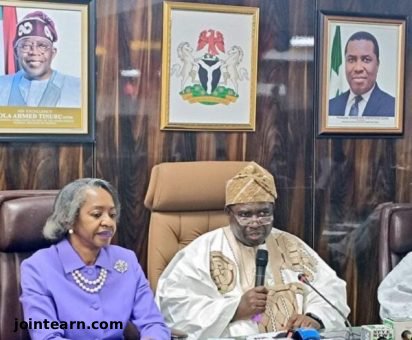
The Chairman of the Independent National Electoral Commission (INEC), Prof. Joash Amupitan, has revealed that about 75 percent of the commission’s court cases stem from pre-election disputes caused by internal party conflicts and poor democratic practices among political parties.
Speaking with journalists in Awka on Wednesday, Amupitan said he is deeply concerned about the situation, stressing that internal wrangling and leadership crises within parties have become a major drain on Nigeria’s electoral system.
“It bothers me because of the money and time wasted. Every time a party goes to court, INEC is joined in the case. We have to engage lawyers and pay for litigation, which is not cheap,” he lamented.
The INEC boss explained that most of these cases are tied to party leadership tussles and primary elections conducted in violation of party constitutions.
Amupitan also criticized Nigerians for focusing primarily on general elections while neglecting the lack of transparency in how political parties select their candidates.
He said INEC is working to strengthen its monitoring capabilities to ensure strict compliance with internal democracy provisions, though certain loopholes in the law still pose challenges.
“For instance, we currently have conflicting court orders — one from Abuja saying the PDP should not hold a convention, and another from Ibadan ordering the party to hold it. Such contradictions highlight the legal confusion in our political system,” he noted.
Responding to questions about the registration of new political parties, Amupitan explained that INEC is constitutionally bound to register any association that meets the legal requirements.
Citing the Musa vs. INEC Supreme Court ruling, he said the judgment affirmed the commission’s duty to register parties that satisfy all constitutional and electoral criteria.
“We are currently reviewing several applications. Once an association meets the established standards after proper evaluation and monitoring, it will be considered for registration,” he added.
On calls for a special court to handle election-related cases, the INEC chairman clarified that election tribunals already function as specialized courts under the constitution.
He, however, acknowledged that the ongoing constitutional amendment process may further streamline the time frame and technical procedures for resolving electoral disputes.
“Election tribunals are already special courts. The issue is not the structure but the time it takes to conclude election matters. That’s part of what the constitutional amendment seeks to address,” Amupitan said.
He further noted that when the Court of Appeal sits as a Presidential Election Tribunal, it functions as a special court distinct from its regular jurisdiction.
Amupitan reiterated INEC’s commitment to strengthening Nigeria’s electoral integrity and promoting internal democracy within political parties to reduce the burden of pre-election litigations.


Leave a Reply